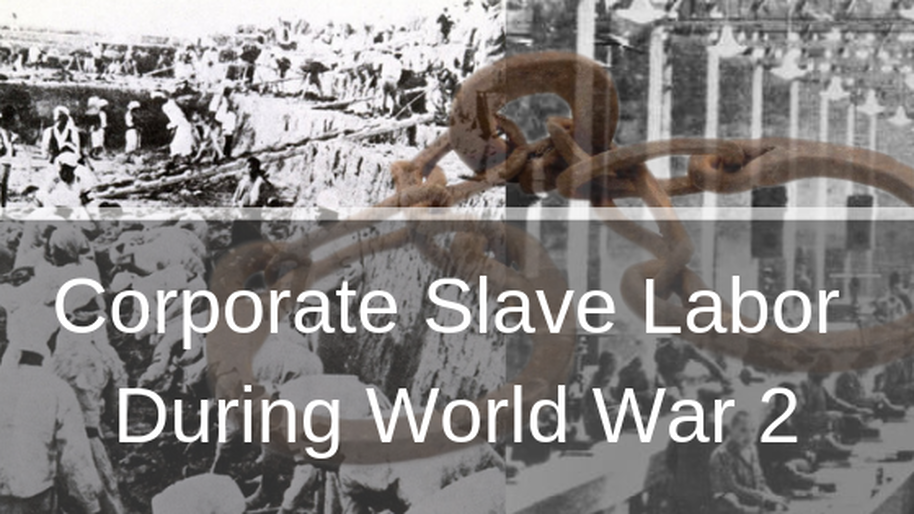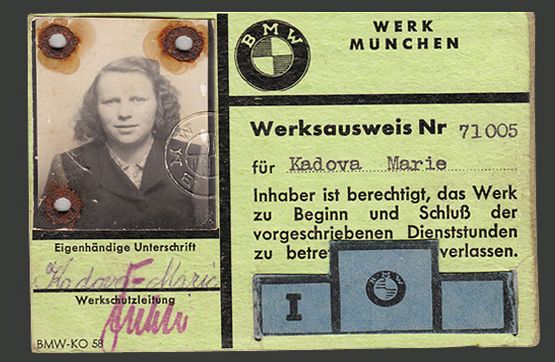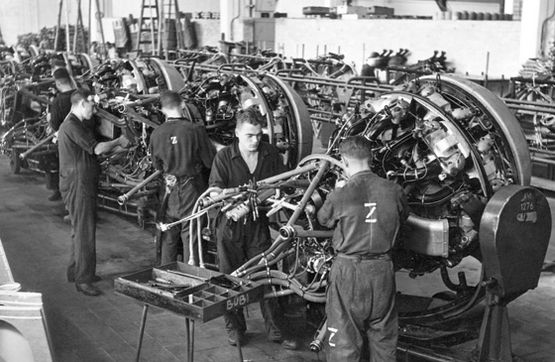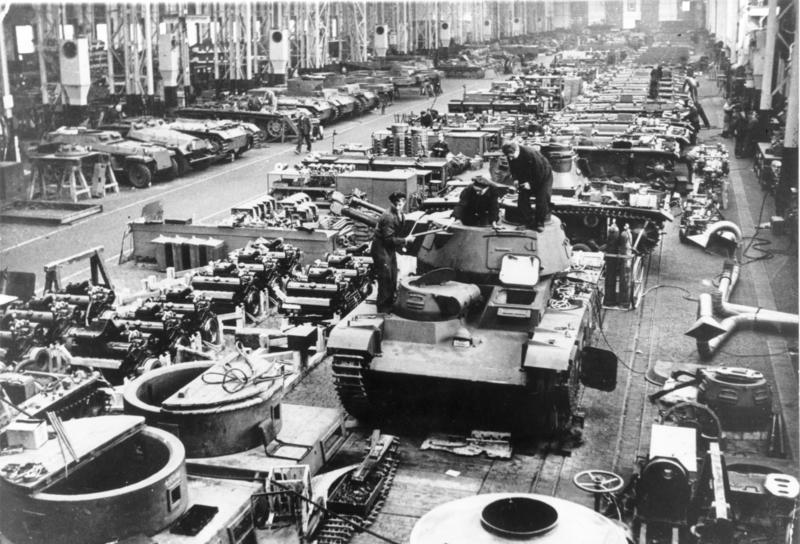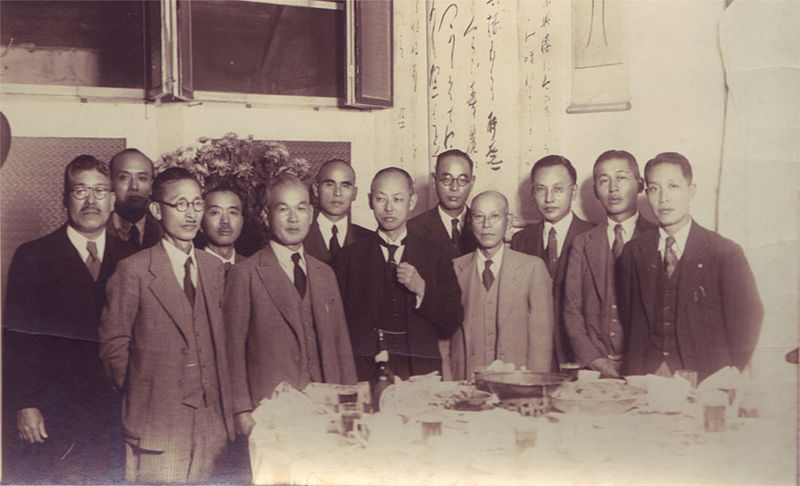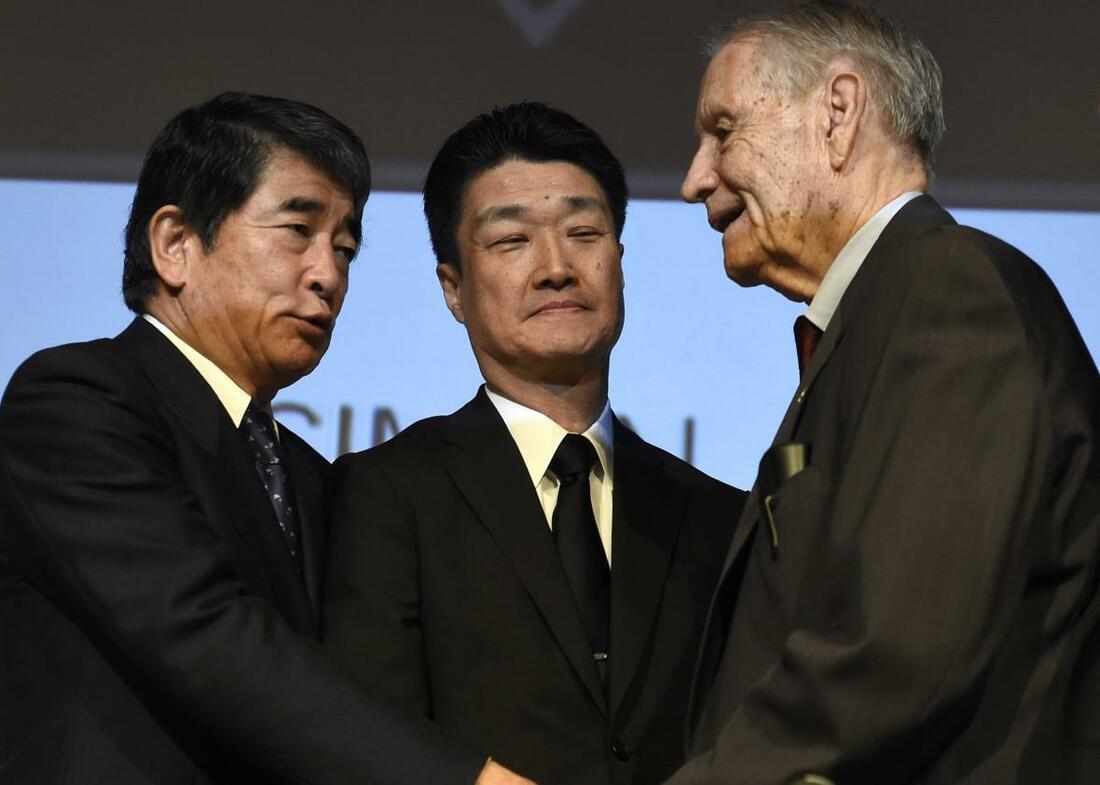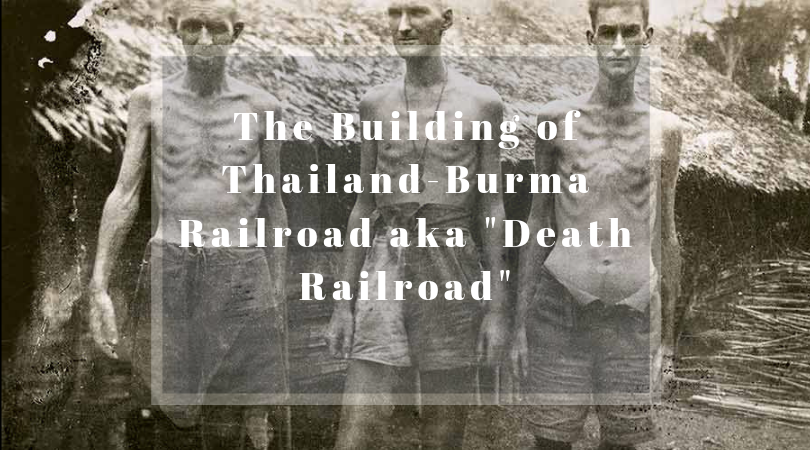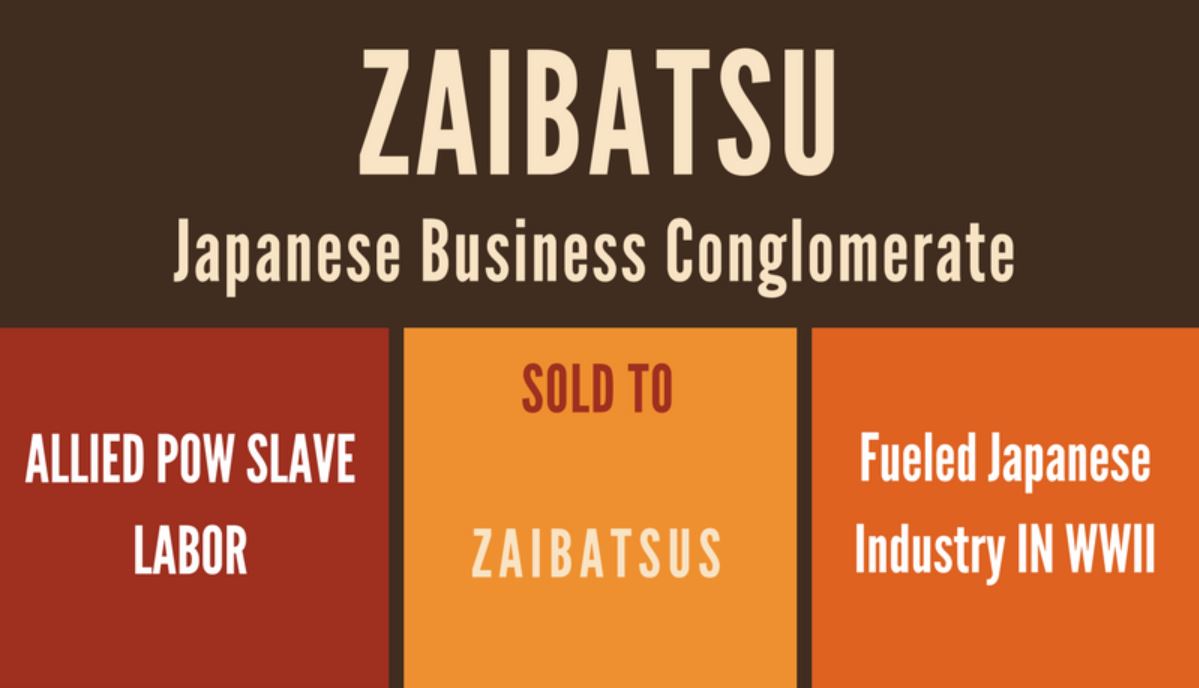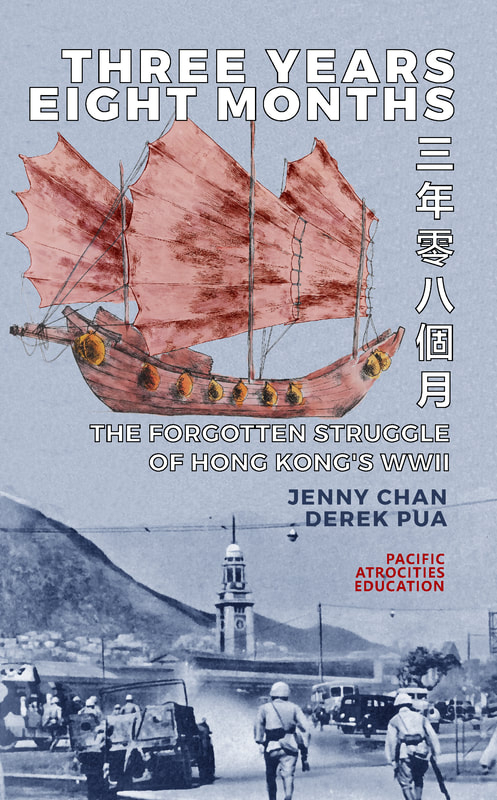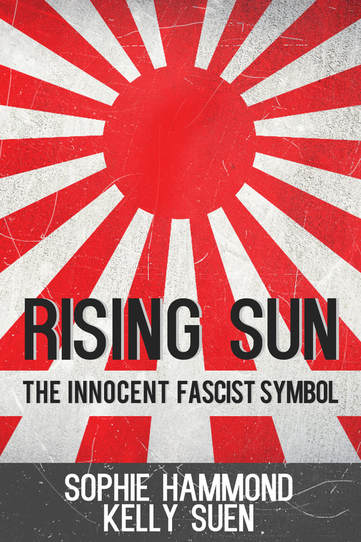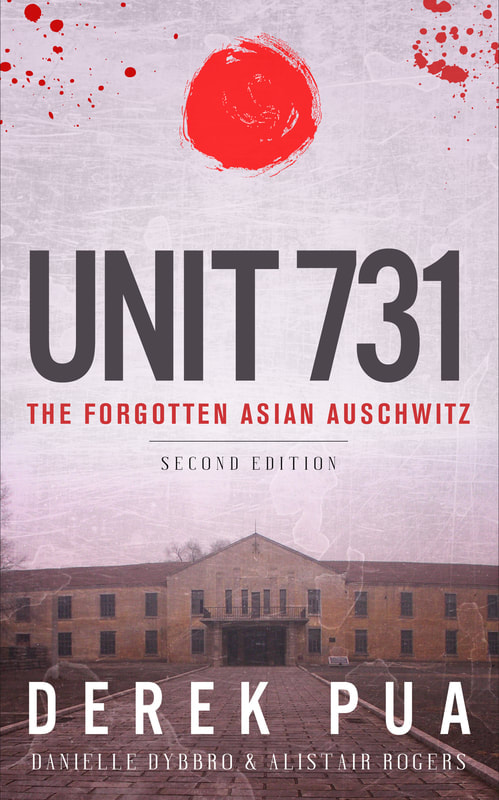|
by Nickii Wantakan Arcado Compensation, apologies, and memorialization remain controversial when talking about corporate responsibilities post-World War II. To this day, former POWs and Holocaust survivors continue to fight for the private sector to acknowledge their role and complicity in utilizing slave labor to their monetary and economic advantage. Social reconciliation, in essence, is the recognition of past actions and taking future initiatives and as such, listed below are companies that were participated in slave labor during World War II. BMW [Bayerische Motoren Werke] BMW was significant in supplying arms, airplanes, engines, and motorcycle parts to the Nazi Regime. One example includes the engine for the Focke Wulf FW190 fighter plane, leading to BMW replacing Mercedes as the leading engine and industrial producer for the German military. By 1945, 90% of BMW’s Munich-Allach plant (by then the largest aircraft engine factory in German) was operated by foreign workers, concentration camp detainees, and POWs. Starting from only 1,000 in 1939, estimates have shown that over 17,000 individuals worked at the plant by the end of the war. A documentary titled The Silence of the Quandts broadcasted in 2007 delves into the role of Herbert Quandt--an investor and industrialized who purchased a controlling interest in BMW--his family, and their role in introducing the use of slave laborers to the German Reich. After the film was shown, family members announced their plan to fund research and investigations to look into their family’s past actions. A 1,500-page document lists that in addition to their history of forced labor, the family also took over Jewish businesses. The family continues to be one of the wealthiest families in Germany. Beginning in 1983, the company took steps in formal apologies and memorialization. It was the first industrial corporation to initiate and encourage public debates as well as publish a novel on the corporation's involvement with slave labor from concentration camps. In 1999, the company founded the “Remembrance, Responsibility and Future” foundation whose goal is to issue compensation to former POWs and forced laborers. During the company's 100th year anniversary (in 2016), representatives also apologized and admitted regrets, for the company’s past actions. Audi One significant automobile companies that used concentration camps to house POW detainees was Audi (f.k.a Auto Union). POWs were forced to produce tank and aircraft engine to assist the Nazi war effort. Over 18,000 workers were tasked with building an underground factory in order to house the tank engines, with 3,700 detainees being forcibly recruited from concentration camps. It is estimated that around 4,500 workers died during the process. Like its predecessors BMW and Volkswagen, the company has taken noteworthy steps in ensuring that its tainted history has not been forgotten. Actions have included building memorials, establishing exhibitions, and bringing in outside historians to investigate crimes made by former bosses and executive members of Audi. Such investigations include the 500-page report by Martin Kukowski and Rudolf Boch, revealing the exact names and locations of the labors camps used by Audi. While large, international German brands have made attempts at publishing their company’s history, historian Rudolf Boch noted that there are still various other smaller firms in Italy, Netherlands, and the Czech Republic that failed to follow the former’s footsteps. In Japan alone, over 12,000 POWs that include American, British, Chinese, Korean, and Filipino detainees are estimated to have been forced into both corporate slave labor during the 1940s. It is also estimated that 1,100 have died via corporate laboring. In addition, the history of larger firms in Japan (otherwise known as ‘zaibatsu’ [財閥] or ‘financial cliques’) have largely been unpublicized. Some examples include the following: East Asia Development Board a.k.a Kōain (興亜院) A cabinet-level government agency during the periods of 1938 - 1942, Kōain was initially created for the purpose of managing and coordinating Japan’s international relations and policies with China. These policies included industrial, economic, and commercial development in China in exchange for citizen and corporate support in Japanese occupied territories. When the company was taken over by the Imperial Japanese Army during the war, the corporation adopted forced labor practices, specifically in enslavement in mines and weaponry production. Furthermore, in 1942, the corporation was merged into the Ministry of Greater East Asia a.k.a Daitōashō [大東亜省]—another cabinet-level ministry that sought to oversee all territories obtained by the Imperial Army in the Pacific Theatre and coordinate efforts to lead to the development of the Greater East Asia Co-Prosperity Sphere. Manchuria Industrial Company [満州重工業開発] Formerly a joint venture with the Nissan conglomerate and located in the Empire of Manchuria (Manchukuo), the Manchuria Industrial Company (MIC) was created for the purpose of the economic development and industrialization of Manchukuo. Several Chinese and Korean slave laborers were forced into technical, logistical, and blue-collar work, resulting in the company’s quick growth during the war. Despite this, some Japanese firms have taken initiative in issuing official apologies on behalf of impacted individuals and family members. One particular Japanese firm that has begun to apologize for wartime slave labor is Mitsubishi. Mitsubishi In 2015, the company, f.k.a Mitsubishi Mining formally apologized to U.S. POWs for their past history of forcing detainees to work its mining and mineral extraction operations. This marks the first major Japanese company to apologize for the use of corporate slave labor during the time of war. By the end of 1945, Mitsubishi Mining detained 876 American POWs. A recorded number of 27 Americans died in Mitsubishi’s labor camp. There continue to be demands for the company to apologize to other POWs, as it is estimated that over 2,000 POWs were held throughout the company’s various labor campsites. In particular, Chinese POWs and their descendants have filed a lawsuit against Mitsubishi in 2014, demanding corporate compensation. In 2016, a settlement was reached in which the company paid 100,000 yuan (roughly $15,000 dollars) to each Chinese victim and their families. While the company noted it would seek to locate all victims associated with the company’s past, there has also been pushbacks from other companies who use postwar peace treaties as reasoning on how wartime compensations have already concluded under the Japanese government. Other arguments include the 1972 treaty between Japan and China, which states that China has waived its right to pursue compensation. You can read more about Japanese zaibatsus and their role in corporate slave labor in another one of our published articles here. References:
Related ArticlesRelated Books
1 Comment
Wilson Nkwanda
9/29/2021 06:38:25 am
This is an eye opener. Thanks
Reply
Leave a Reply. |
- Home
- Stories
-
Internship
- Summer 2024 Internship
- Summer 2023 Internship
- Fall 2022 Internship
- Summer 2022 Internship
- Summer 2021 Internship
- Fall 2020- Spring 2021 Internship
- Summer 2020 Internship
- Fall 2019 Internship
- Summer 2019 Internship >
- School Year 2018-2019 Internship
- Summer 2018 Internship >
- Fall 2017 Internship
- Summer 2017 Internship >
- Books
- Archives
-
Resource Page
-
Supplementary Research Guides
>
- Unit 731 - Guide >
-
Philippines' Resistance - Guide
>
- Philippines World War II Timeline
- The Japanese Invasion & Conquest of the Philippines
- Bataan Death March
- Formation of Underground Philippines Resistance
- Supplies of the Guerrilla Fighters
- The Hukbalahap
- Hunter's ROTC
- Marking's Guerrillas
- United States Army Forces in the Philippines of Northern Luzon (USAFIP-NL)
- The Aetas
- Chinese and Filipino-Chinese Nationalist Guerrilla Units
- The Female Faces of the Philippine Guerrillas
- Rising Sun Flag - Guide >
- Pinay Guerrilleras - Guide >
- Fall of Singapore - Guide >
- Three Years and Eight Months - Guide >
- Siamese Sovereignty - Guide >
- The Khabarovsk War Crimes Trial - Guide >
- Unit 731 Cover-up : The Operation Paperclip of the East - Guide >
- Marutas of Unit 731 - Guide >
- Prince Konoe Memoir - Guide >
- Competing Empires in Burma - Guide >
- Battle of Shanghai - Guide >
- Ishi Shiro - Guide >
- Taiwan The Israel of the East - Guide >
- Seeking Justice for Biological Warfare Victims of Unit 731 - Guide >
- Rice and Revolution - Guide >
- Clash of Empires - Guide >
-
Hunger for Power and Self-SufficiencyI - Guide
>
- The Influence of War Rations on Post-War Culinary Transformations
- How World War II Complicated Food Scarcity and Invention
- American Military Innovations
- Government-Sponsored Food Inventions in Europe during World War II
- Feeding the Army: The Adaptation of Japanese Military Cuisine and Its Impact on the Philippines
- Mixed Dishes: Culinary Innovations Driven by Necessity and Food Scarcity
-
Denial A Quick Look of History of Comfort Women and Present Days’ Complication - Guide
>
- The Comfort Women System and the Fight for Recognition
- The Role of Activism and International Pressure
- The Controversy over Japanese History Textbooks
- The Sonyŏsang Statue and the Symbolism of Public Memorials
- Activism and Support from Japanese Citizens
- The Future of Comfort Women Memorials and Education
- Echoes of Empire: The Power of Japanese Propaganda - Guide >
- Lesson Plans >
-
Supplementary Research Guides
>
|
Pacific Atrocities Education
730 Commercial Street San Francisco, CA 94108 415-988-9889 |
Copyright © 2021 Pacific Atrocities Education.
We are a registered 501 (c)(3) charity. |
- Home
- Stories
-
Internship
- Summer 2024 Internship
- Summer 2023 Internship
- Fall 2022 Internship
- Summer 2022 Internship
- Summer 2021 Internship
- Fall 2020- Spring 2021 Internship
- Summer 2020 Internship
- Fall 2019 Internship
- Summer 2019 Internship >
- School Year 2018-2019 Internship
- Summer 2018 Internship >
- Fall 2017 Internship
- Summer 2017 Internship >
- Books
- Archives
-
Resource Page
-
Supplementary Research Guides
>
- Unit 731 - Guide >
-
Philippines' Resistance - Guide
>
- Philippines World War II Timeline
- The Japanese Invasion & Conquest of the Philippines
- Bataan Death March
- Formation of Underground Philippines Resistance
- Supplies of the Guerrilla Fighters
- The Hukbalahap
- Hunter's ROTC
- Marking's Guerrillas
- United States Army Forces in the Philippines of Northern Luzon (USAFIP-NL)
- The Aetas
- Chinese and Filipino-Chinese Nationalist Guerrilla Units
- The Female Faces of the Philippine Guerrillas
- Rising Sun Flag - Guide >
- Pinay Guerrilleras - Guide >
- Fall of Singapore - Guide >
- Three Years and Eight Months - Guide >
- Siamese Sovereignty - Guide >
- The Khabarovsk War Crimes Trial - Guide >
- Unit 731 Cover-up : The Operation Paperclip of the East - Guide >
- Marutas of Unit 731 - Guide >
- Prince Konoe Memoir - Guide >
- Competing Empires in Burma - Guide >
- Battle of Shanghai - Guide >
- Ishi Shiro - Guide >
- Taiwan The Israel of the East - Guide >
- Seeking Justice for Biological Warfare Victims of Unit 731 - Guide >
- Rice and Revolution - Guide >
- Clash of Empires - Guide >
-
Hunger for Power and Self-SufficiencyI - Guide
>
- The Influence of War Rations on Post-War Culinary Transformations
- How World War II Complicated Food Scarcity and Invention
- American Military Innovations
- Government-Sponsored Food Inventions in Europe during World War II
- Feeding the Army: The Adaptation of Japanese Military Cuisine and Its Impact on the Philippines
- Mixed Dishes: Culinary Innovations Driven by Necessity and Food Scarcity
-
Denial A Quick Look of History of Comfort Women and Present Days’ Complication - Guide
>
- The Comfort Women System and the Fight for Recognition
- The Role of Activism and International Pressure
- The Controversy over Japanese History Textbooks
- The Sonyŏsang Statue and the Symbolism of Public Memorials
- Activism and Support from Japanese Citizens
- The Future of Comfort Women Memorials and Education
- Echoes of Empire: The Power of Japanese Propaganda - Guide >
- Lesson Plans >
-
Supplementary Research Guides
>
